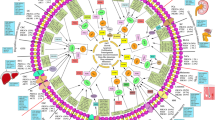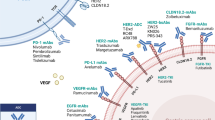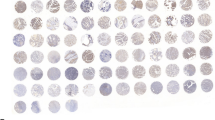Abstract
Despite considerable advances in gastrectomy and chemotherapy, the prognosis of gastric cancer (GC) has not noticeably improved due to lymph node or distant metastases. P21-activated serine/threonine kinase 4 (Pak4) plays an important role in cell morphology and cytoskeletal reorganization—both prerequisite steps for cell migration. However, it is still unclear if activated Pak4 (p-Pak4) is related to prognosis in GC patients. In our study, the level of p-Pak4 in 95 GC tissue specimens was examined by immunohistochemistry (IHC). We observed significant correlation between the level of p-Pak4 and grosstype (advanced stage GC vs. early stage GC, P = 0.04). Moreover, GC patients with higher p-Pak4 levels had a poorer prognosis than those with lower p-Pak4 levels (17 vs. 38 months, P = 0.001). Multivariate analysis showed that high phosphorylation level of Pak4, advanced stage GC, and lymph node metastasis were independent prognostic factors for GC patients (p-Pak4, P = 0.026; advanced stage GC, P = 0.030; lymph node metastasis, P = 0.016). In addition, in vitro assays indicated that knockdown of Pak4 accompanied with decreased p-Pak4, inhibited cell migration via downregulation of the traditional downstream signaling pathways of Pak4, LIMK1, and cofilin. In conclusion, this report reveals that high level of p-Pak4 correlates with poor prognosis in GC, thereby suggesting that p-Pak4 might be a potential prognostic marker for GC.



Similar content being viewed by others
References
Siegel R, Naishadham D, Jemal A. Cancer statistics, 2012. CA: Cancer J Clin. 2012;62(1):10–29. doi:10.3322/caac.20138.
Ferlay J, Shin HR, Bray F, Forman D, Mathers C, Parkin DM. Estimates of worldwide burden of cancer in 2008: GLOBOCAN 2008. Int J Cancer J int du Dancer. 2010;127(12):2893–917. doi:10.1002/ijc.25516.
Piazuelo MB, Correa P. Gastric cancer: Overview. Colomb Med. 2013;44(3):192–201.
Steeg PS. Metastasis suppressors alter the signal transduction of cancer cells. Nat Rev Cancer. 2003;3(1):55–63. doi:10.1038/nrc967.
Ye Y, Zhou X, Li X, Tang Y, Sun Y, Fang J. Inhibition of epidermal growth factor receptor signaling prohibits metastasis of gastric cancer via downregulation of MMP7 and MMP13. Tumour Biol: J Int Soc Oncodevelopmental Biol Med. 2014;35(11):10891–6. doi:10.1007/s13277-014-2383-1.
Li Y, Shao Y, Tong Y, Shen T, Zhang J, Li Y, et al. Nucleo-cytoplasmic shuttling of PAK4 modulates beta-catenin intracellular translocation and signaling. Biochim Biophys Acta. 2012;1823(2):465–75. doi:10.1016/j.bbamcr.2011.11.013.
Gholamin S, Fiuji H, Maftouh M, Mirhafez R, Shandiz FH, Avan A. Targeting c-MET/HGF signaling pathway in upper gastrointestinal cancers: rationale and progress. Curr Drug Targets. 2014;15(14):1302–11.
Kumar R, Gururaj AE, Barnes CJ. p21-activated kinases in cancer. Nat Rev Cancer. 2006;6(6):459–71. doi:10.1038/nrc1892.
Qu J, Cammarano MS, Shi Q, Ha KC, de Lanerolle P, Minden A. Activated PAK4 regulates cell adhesion and anchorage-independent growth. Mol Cell Biol. 2001;21(10):3523–33. doi:10.1128/MCB. 21.10.3523-3533.2001.
Abo A, Qu J, Cammarano MS, Dan C, Fritsch A, Baud V, et al. PAK4, a novel effector for Cdc42Hs, is implicated in the reorganization of the actin cytoskeleton and in the formation of filopodia. EMBO J. 1998;17(22):6527–40. doi:10.1093/emboj/17.22.6527.
Kim JH, Kim HN, Lee KT, Lee JK, Choi SH, Paik SW, et al. Gene expression profiles in gallbladder cancer: the close genetic similarity seen for early and advanced gallbladder cancers may explain the poor prognosis. Tumour Biol: J Int Soc Oncodevelopmental Biol Med. 2008;29(1):41–9. doi:10.1159/000132570.
Siu MK, Chan HY, Kong DS, Wong ES, Wong OG, Ngan HY, et al. p21-activated kinase 4 regulates ovarian cancer cell proliferation, migration, and invasion and contributes to poor prognosis in patients. Proc Natl Acad Sci U S A. 2010;107(43):18622–7. doi:10.1073/pnas.0907481107.
Liu Y, Xiao H, Tian Y, Nekrasova T, Hao X, Lee HJ, et al. The pak4 protein kinase plays a key role in cell survival and tumorigenesis in athymic mice. Mol Cancer Res: MCR. 2008;6(7):1215–24. doi:10.1158/1541-7786.MCR-08-0087.
Li X, Ke Q, Li Y, Liu F, Zhu G, Li F. DGCR6L, a novel PAK4 interaction protein, regulates PAK4-mediated migration of human gastric cancer cell via LIMK1. Int J Biochem Cell Biol. 2010;42(1):70–9. doi:10.1016/j.biocel.2009.09.008.
Wang C, Li Y, Zhang H, Liu F, Cheng Z, Wang D, et al. Oncogenic PAK4 regulates Smad2/3 axis involving gastric tumorigenesis. Oncogene. 2014;33(26):3473–84. doi:10.1038/onc.2013.300.
Zhang J, Wang J, Guo Q, Wang Y, Zhou Y, Peng H, et al. LCH-7749944, a novel and potent p21-activated kinase 4 inhibitor, suppresses proliferation and invasion in human gastric cancer cells. Cancer Lett. 2012;317(1):24–32. doi:10.1016/j.canlet.2011.11.007.
Guo Q, Su N, Zhang J, Li X, Miao Z, Wang G, et al. PAK4 kinase-mediated SCG10 phosphorylation involved in gastric cancer metastasis. Oncogene. 2014;33(25):3277–87. doi:10.1038/onc.2013.296.
Wong LE, Chen N, Karantza V, Minden A. The Pak4 protein kinase is required for oncogenic transformation of MDA-MB-231 breast cancer cells. Oncogenesis. 2013;2:e50. doi:10.1038/oncsis.2013.13.
Zhang HJ, Siu MK, Yeung MC, Jiang LL, Mak VC, Ngan HY, et al. Overexpressed PAK4 promotes proliferation, migration and invasion of choriocarcinoma. Carcinogenesis. 2011;32(5):765–71. doi:10.1093/carcin/bgr033.
Mak GW, Chan MM, Leong VY, Lee JM, Yau TO, Ng IO, et al. Overexpression of a novel activator of PAK4, the CDK5 kinase-associated protein CDK5RAP3, promotes hepatocellular carcinoma metastasis. Cancer Res. 2011;71(8):2949–58. doi:10.1158/0008-5472.CAN-10-4046.
Kesanakurti D, Chetty C, Rajasekhar Maddirela D, Gujrati M, Rao JS. Functional cooperativity by direct interaction between PAK4 and MMP-2 in the regulation of anoikis resistance, migration and invasion in glioma. Cell Death Dis. 2012;3:e445. doi:10.1038/cddis.2012.182.
Callow MG, Clairvoyant F, Zhu S, Schryver B, Whyte DB, Bischoff JR, et al. Requirement for PAK4 in the anchorage-independent growth of human cancer cell lines. J Biol Chem. 2002;277(1):550–8. doi:10.1074/jbc.M105732200.
Wells CM, Whale AD, Parsons M, Masters JR, Jones GE. PAK4: a pluripotent kinase that regulates prostate cancer cell adhesion. J Cell Sci. 2010;123(Pt 10):1663–73. doi:10.1242/jcs.055707.
Li X, Liu F, Li F. PAK as a therapeutic target in gastric cancer. Expert Opin Ther Targets. 2010;14(4):419–33. doi:10.1517/14728221003642019.
Lu W, Xia YH, Qu JJ, He YY, Li BL, Lu C, et al. p21-activated kinase 4 regulation of endometrial cancer cell migration and invasion involves the ERK1/2 pathway mediated MMP-2 secretion. Neoplasma. 2013;60(5):493–503. doi:10.4149/neo_2013_064.
Ahn HK, Jang J, Lee J, Se Hoon P, Park JO, Park YS, et al. P21-activated kinase 4 overexpression in metastatic gastric cancer patients. Transl Oncol. 2011;4(6):345–9.
Conflicts of interest
None
Funding sources
This work was supported by the National Science and Technology Major Project (No. 2013ZX09303002) and the National Natural Science Foundation of China (Nos. 81270036, 81472193, 81372546, 81372485).
Author information
Authors and Affiliations
Corresponding authors
Electronic supplementary material
Below is the link to the electronic supplementary material.
Supplementary 1
Western blot illustrating the specificity of the p-Pak4 Ser474 antibody using samples of gastric cancer. (JPEG 62 kb)
Rights and permissions
About this article
Cite this article
Li, D., Zhang, Y., Li, Z. et al. Activated Pak4 expression correlates with poor prognosis in human gastric cancer patients. Tumor Biol. 36, 9431–9436 (2015). https://doi.org/10.1007/s13277-015-3368-4
Received:
Accepted:
Published:
Issue Date:
DOI: https://doi.org/10.1007/s13277-015-3368-4




